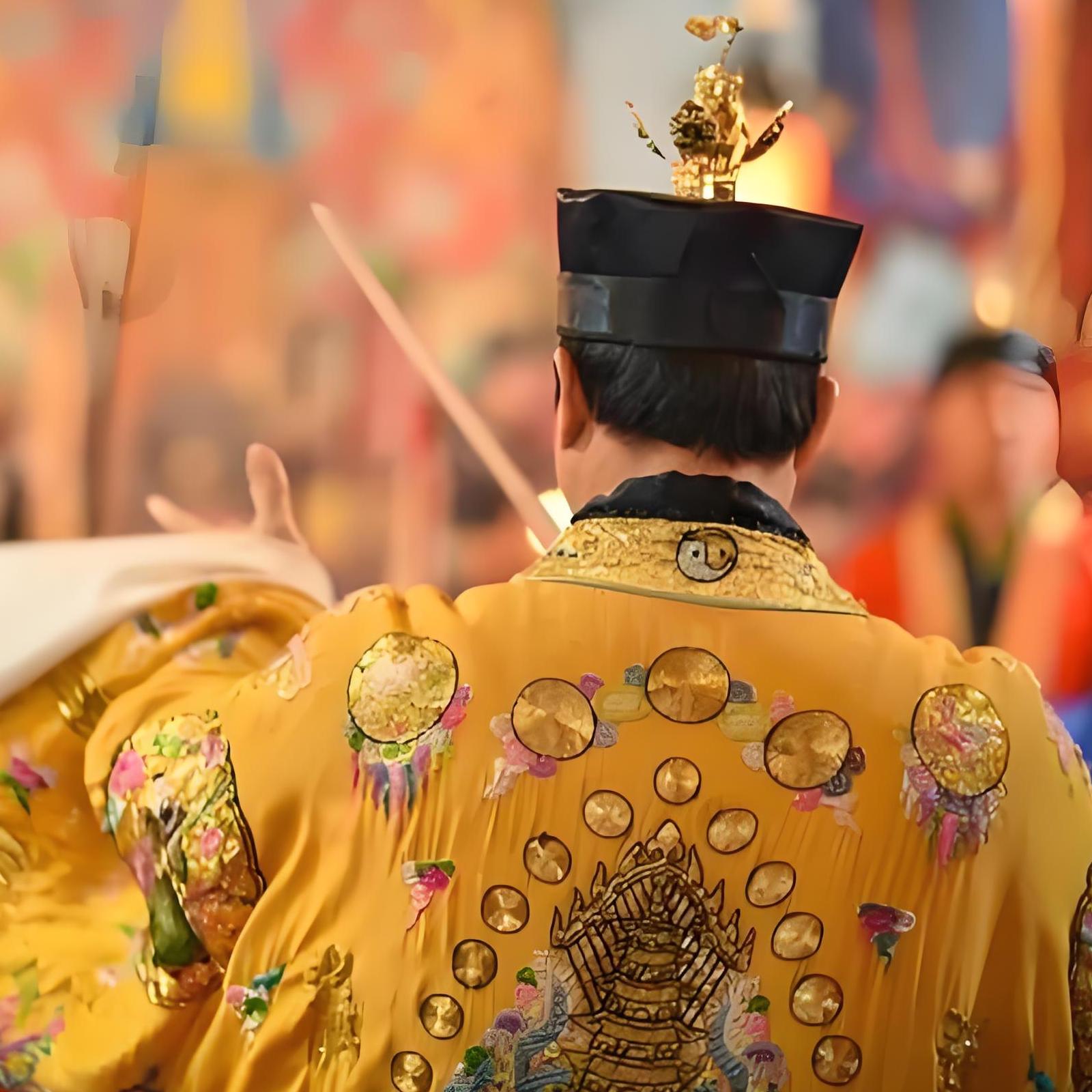Long ago, Sanliao Village had three main surnames: Chen, Liu, and Shen. Over time, only the Shen and Zeng families remained, residing on opposite sides of a river and becoming bitter enemies. The Zeng family had several members who served as imperial geomancers, occasionally discussing feng shui with the emperor. The emperor learned that the Zeng ancestral hall lacked a "sha shou" (a protective earth wall) and mocked them for it.
Seizing this opportunity, a clever Zeng ancestor explained that the Shen family was numerous and powerful, making it difficult for the Zeng family to maintain the wall without it being destroyed. The emperor, sympathetic to the Zeng family's plight, dispatched soldiers from afar, and a eunuch named Wang was sent to oversee the construction. Once completed, the Zeng family devised a bold plan to eradicate the Shen family by leveraging the emperor’s support. On the eve of Wang's departure, they hosted a banquet for him. After the feast, Wang died suddenly, and the Zeng family placed his body at the Shen ancestral hall’s entrance, accusing the Shen family of murder. The emperor, enraged, sent troops to eliminate the Shen family.
Whether Wang was poisoned by the Shen or Zeng family remained known only to the Zeng family. Wang was buried beside the protective wall, guarding the Zeng family's feng shui forever. Today, Wang's grave still exists, though it has decayed over time, leaving only a barely legible tombstone. This dramatic history has almost turned into a mere tale of the past. If not for the lessons from the current village chief, one might never connect Wang with these events. The emperor also granted the Zeng family permission to celebrate with lanterns on the 11th day of the first lunar month and light sacred fires on the 14th, leading to the prosperity of the Zeng family.
Taking advantage of this opportunity, the Zeng family launched a complete geomantic attack on the Shen family. Because the Shen family's residence was shaped like a centipede, the Zeng family built a stone arch bridge resembling an extended goose neck (geese eat centipedes). Consequently, the Shen family dwindled, eventually leaving only one household. This last family had to adopt the surname Zhong (a matriarchal surname of the Zeng family) to survive in Sanliao. Chief Zhong took me to see this household, which had moved closer to Zeng territory, trading a plot of land to build their current home. Isolated by rice fields, their home is accessible only by a muddy path, reflecting their struggle to find space to live among the dominant Zeng family.
Seeing their cramped living conditions evoked a deep sense of sympathy. In Sanliao Village, if a desirable piece of feng shui land was identified but occupied by another family, extreme measures, including taking lives, might be employed to obtain it. Two such cases are the feng shui sites "Tiger Returning Head" and "Guanyin Watching the Sea."
A Zeng family member coveted the "Tiger Returning Head" land, which belonged to another branch of the Zeng family. Resorting to seducing the wife of that branch’s member, the affair was discovered, and the offending member was beaten to death by his relatives. The case was taken to court, with the condition for dropping charges being burial at the "Tiger Returning Head" site.
The Zeng family matriarch’s tomb, known as "Guanyin Watching the Sea," also holds a tale. The Zeng family had faced eighteen generations of having only one male heir. The matriarch’s maiden family, the Zhong family, possessed a piece of valuable feng shui land. To secure this land, the Zeng matriarch tragically swallowed gold and died at her maiden home. The Zeng family requested to bury her there, seeking only a suitable burial site. The Zhong family agreed, allowing burial on a hill, which perfectly met the Zeng family's wishes, granting them the coveted feng shui land. Subsequently, the Zeng family broke their eighteen-generation curse of having only one male heir.




